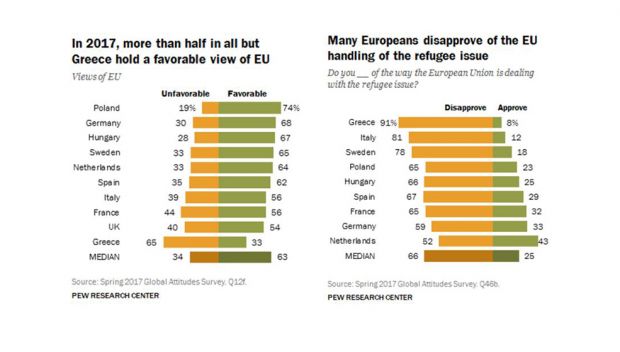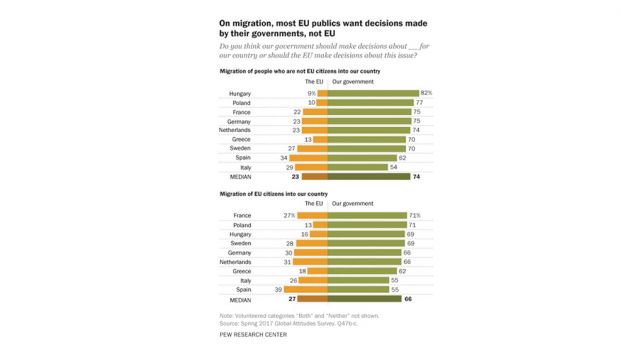The poll involved some 9,935 respondents from ten EU countries (France, Germany, Greece, Hungary, Italy, the Netherlands, Poland, Spain, Sweden and the United Kingdom) that constitute 80 percent of the EU’s population and account for 84 percent of its GDP. On the eve of Brexit and in a Europe confronting major changes, the questions addressed a range of topics, including general attitudes towards the EU, the image of dominant countries within the block (e.g. Germany) and the issue of migration.
Despite the persistent mantra that Hungary is ‘anti-EU’, 67 percentof Hungarians declared that they hold a favorable view of the European Union. This is the third highest percentage in the poll after Poland and Germany and higher than countries like Sweden or the Netherlands.
While an average of 63 percent holds a favorable view of the EU generally, this is not true for its handling of the migration crisis. The research shows that two out of every three respondents believe that the EU’s migration crisis policy has failed. The disapproval rate among Hungarians reaches 66 percent, right at the median level. Significantly, even a clear majority of Germans, 59 percent, disapprove of the way the EU is dealing with the refugee issue.
Finally, here’s something that comes as little surprise to us but deserves much more attention in Europe’s debate about the crisis: “On migration, most EU publics want decisions made by their governments, not EU.” Strong majorities across all ten countries say they want their national government to decide. This is exactly what the Orbán Government has been saying, and that’s why we make the effort to conduct national consultations on this issue.
Decisions on these important issues belong at the nation-state level with governments that are accountable to their citizens. Nothing about us without us, as we say, and the citizens of Europe deserve that respect.


